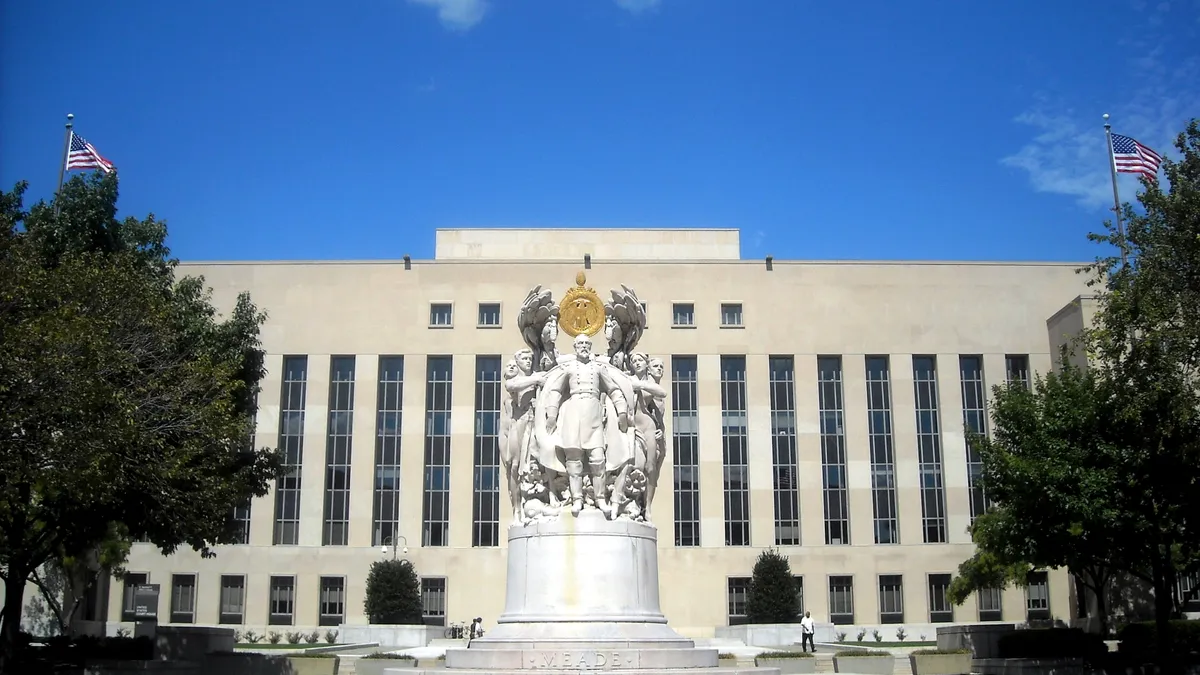Dive Brief:
- The American Clinical Laboratory Association made its oral arguments to the U.S. Court of Appeals for the District of Columbia Circuit Monday in its lawsuit seeking to require HHS to suspend a 2016 rule the lab group argues improperly implements the Protecting Access to Medicare Act.
- A three-judge panel focused questioning on if the trade group had standing to bring the lawsuit and what potential remedies would be if they were to strike down the rule. They also questioned whether the government's argument that preclusion of judicial review for data collection could have unintended consequences in future lawsuits.
- Cowen Washington Research Group's Eric Assaraf told MedTech Dive he believes the legal challenge has little chance of success given the historic difficulty for plaintiffs bringing similar lawsuits against CMS. But if the final rule is struck down, Quest Diagnostics and LabCorp will likely get a boost on Wall Street given investors are not expecting a victory, he said.
Dive Insight:
The oral arguments before judges Thomas Griffith, Patricia Millett and Cornelia Pillard follow the dismissal of the lawsuit by U.S. District Judge Amy Berman Jackson last September. Berman Jackson wrote the case raised "important questions" but ruled that Congress "expressly precluded judicial review of issues such as these."
ACLA's attorney argued against that interpretation. He said Congress wrote a two-step process for the implementation of PAMA: the establishment of parameters for data collection and the establishment of payment amounts. ACLA contends Congress only prevents judicial review of the establishment of payment amounts, not how HHS collects data.
"What we've got here though is a clear indication that Congress actually in the statute distinguished between these two different things," King & Spalding's Ashley Parrish said during oral arguments. "The Congress saw those two things as different and if it's reasonably susceptible, then we have to win."
ACLA also noted that when HHS established which labs were required to submit data, its definition of applicable laboratories excluded hospital labs, which represented 26% of Clinical Laboratory Fee Schedule payments in 2016. Excluding such a large swath of labs goes against congressional intent, the lab group said.
The final rule should as a result be struck down and the payment rates established by the process should be vacated, ACLA argued.
Judge Pillard asked Parrish what the appropriate remedy would be if the court agreed to strike down the rule.
"Are the only options the pre-PAMA rates or the rates that the secretary has put in place under the challenged regulation or is there some other option?" she asked.
Parrish responded that HHS has the ability to establish new payment rates through its administrative process, for example by collecting new data and putting a new payment schedule into place.
But the government disagreed.
"There is no middle ground, which I think only highlights why Congress thought that the judicial review for inclusion was so important that they got rid of a 30-year process for clinical laboratory fees and replaced it with a new process. And if every three years and you litigate, keep coming into court and challenge that new process, well, PAMA may well never go into effect," Department of Justice attorney Dennis Fan said on behalf of HHS.
Judge Millett questioned if the government's argument that the statute precludes judicial review could have unintended effects. For example, she asked if a company could bring a lawsuit if the government failed to uphold responsibility to keep the data reported confidential under the law, or if such a hypothetical would not be able to be reviewed by the courts under HHS' argument.
"You're asking us to adopt an interpretation of statutory text that gets you into the jurisdiction stripping provision. And it's our job to be careful when we do that. We have presumptions against doing so," Millett said.











